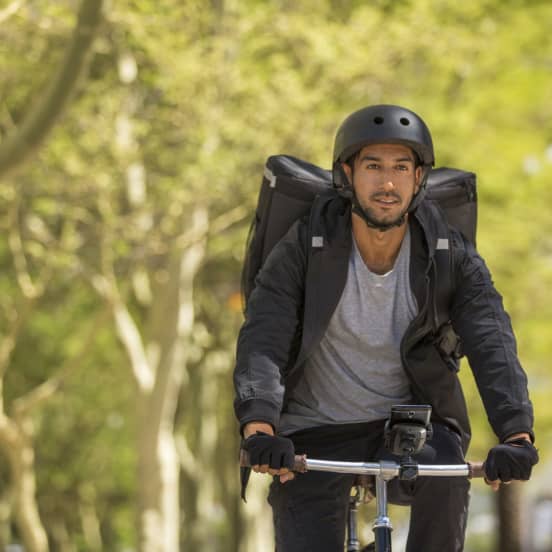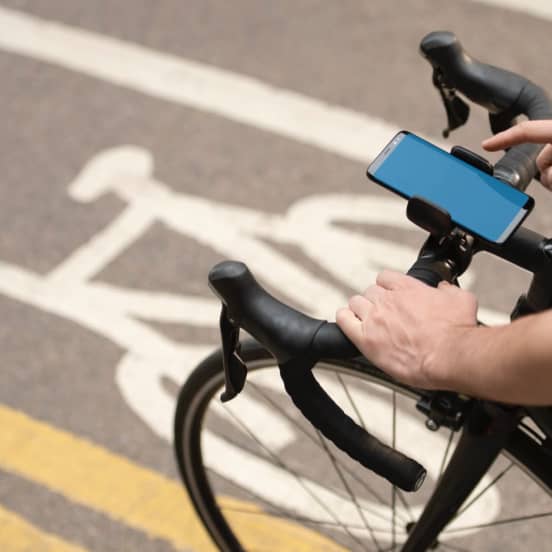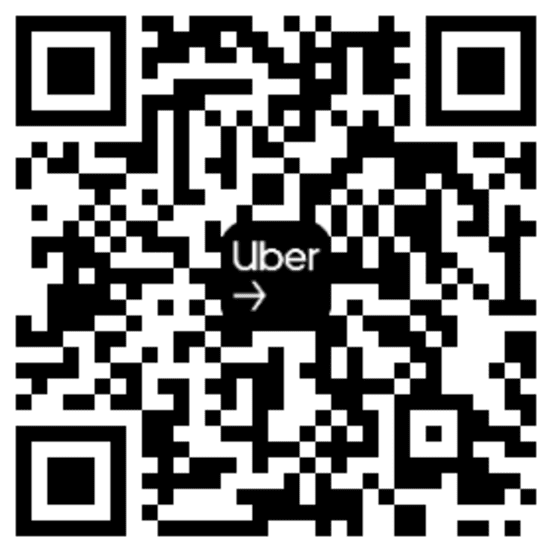Uber's Community Guidelines
Our Community Guidelines were developed to help make every experience feel safe and respectful. Whether you’re a driver or a rider, JUMP user or delivery person, restaurant or Uber Eats customer, everyone is expected to treat everyone else with respect, help keep one another safe, and follow the law.
Looking for driving info? Switch to driver
Community Guidelines spotlight
Not following any of our Community Guidelines may result in the loss of access to your Uber accounts. Here are a few examples:
Drug use and open containers of alcohol are never allowed while using the Uber apps
Discriminating against someone based on traits such as age, color, disability, gender identity, marital status, national origin, race, religion, sex, sexual orientation, or any other characteristic protected under relevant law
Using Uber apps to commit any crime
Sexual assault or sexual misconduct
Additional guidelines for Uber Eats
In addition to following all of Uber’s Community Guidelines, Uber Eats users must also follow an additional set of standards.
Proper delivery of orders
An insulated bag can make for a better customer experience, but it isn’t required unless you’re delivering in a location where it’s required by law. Deliveries by bicycle may benefit from a more specialized bag to protect food from movement and weather conditions. Restaurants and customers expect you to deliver their orders safely and in accordance with relevant safety standards. For example, opening packaging during delivery can lead to foreign matter in food, which may pose a significant food safety risk for customers.
Follow the restaurant's recommendations
Restaurants may outline certain delivery guidelines that promote food safety, adhere to regulatory guidance, or accommodate customer dietary restrictions, and they expect you to follow them—for example, restaurant notices to keep halal and non-halal food separate.
Observe local laws for delivering alcohol
Only customers who are the legal age to buy alcohol and are not intoxicated can order or receive alcohol deliveries where available. Delivery people are responsible for following local requirements for alcohol delivery, which often include asking customers to show their ID and refusing delivery if a customer is underage or appears intoxicated.
Safety tips
Your personal space and comfort should be respected at all times while you're driving or delivering with us. If you encounter a difficult customer, here are a few recommendations.
You can cancel an order at any time
If you feel threatened or unsafe, you can end the trip and report the incident to us.
Report the incident
Uber reviews all reports submitted to our customer support team that may violate our Community Guidelines. To report an incident through your app, go to Help, select the relevant trip, and submit a message to our support team.
Contact authorities in the event of an emergency
If you need help while you're on a trip, use the in-app Emergency Button to call authorities. The app displays your location and trip details, so you can quickly share them with emergency services.
Frequently asked questions
- How does Uber enforce their Community Guidelines?
Uber receives feedback through a variety of channels, reviews reports submitted to our customer support team that may violate our Community Guidelines, and may investigate through a specialized team. We may put a hold on your account until our review is complete. Not following any one of our Community Guidelines may result in the loss of access to your Uber account. This may include certain actions you may take outside of the apps, if we determine that those actions threaten the safety of the Uber community, or cause harm to Uber’s brand, reputation, or business.
- What are some actions that may result in losing access to any Uber app?
Not following any of our Community Guidelines may result in the loss of access to your Uber accounts. Here are some examples of Community Guidelines violations:
Physical contact. Hurting or intending to hurt anyone.
Threatening and rude behavior. Using language or gestures that could be disrespectful, threatening, or inappropriate.
Breaking laws. Violating any applicable law, including airport rules and regulations when at the airport, and rules of the road, such as speed and traffic laws, at any time when using the Uber apps. All drivers and delivery people using a vehicle are required by law to maintain a valid driver’s license, insurance, and vehicle registration.
Discrimination. Discriminating against someone based on traits such as age, color, disability, gender identity, marital status, national origin, race, religion, sex, sexual orientation, or any other characteristic protected under relevant law.
Drugs and alcohol. Driving or biking while intoxicated (it’s against the law).
Fraud. Deception can weaken trust and also be dangerous. Examples of fraud include deliberately increasing the time or distance of a trip or delivery for fraudulent purposes; accepting trip, order, or delivery requests without the intention to complete them, including provoking riders to cancel for fraudulent purposes; creating dummy accounts for fraudulent purposes; claiming fraudulent fees or charges, like false cleaning fees; intentionally requesting, accepting, or completing fraudulent or falsified trips or deliveries; claiming to complete a delivery without ever picking up the delivery item; picking up a delivery item but retaining all or a portion of the item, and not delivering the entire order; abusing promotions and/or not using them for their intended purpose; disputing charges for fraudulent or illegitimate reasons; or creating improper duplicate accounts.
Account sharing. To use any Uber app, you need to register and maintain an active account. Don’t let another person use your account, and never share your personal information used in connection with your account, such as your username and password, with anyone else. For example, delivery people must complete all parts of the delivery themselves—including any handling after an order is picked up from the restaurant up until final delivery to the customer—with no exception.
Providing inaccurate vehicle information. For an easy pickup or delivery, the Uber apps give riders and customers identifying information about drivers and delivery people and their vehicles, including their license plate number, vehicle make and model, profile picture, and name. Inaccurate or outdated information creates confusion among riders and customers and can diminish their experience using the Uber apps.
Sex while using the Uber apps. Uber has a no-sex rule. Sexual contact is prohibited while using the Uber apps, including during a trip or delivery, regardless of whether you know the person or they give you their consent.
Sexual assault and misconduct. Uber prohibits sexual assault and sexual misconduct of any kind. Sexual assault and misconduct refers to sexual contact or behavior without explicit consent of the other person.
Unwanted contact with riders after a trip or delivery. Contact should end when the delivery is complete, unless it’s to return a lost item. For example, texting, calling, visiting, or trying to visit someone in person after completing a delivery is not allowed.
- Do Uber’s Community Guidelines apply to my customers, too?
Yes. Uber's Community Guidelines apply to everyone who uses any of our apps, including Uber Eats customers and restaurants and staff, as well as drivers, riders, and JUMP users.
Deliver your way in the app
Deliver your way in the app
The information provided on this web page is intended for informational purposes only and may not be applicable in your country, region, or city. It is subject to change and may be updated without notice.
About
Explore
Jobs by city








